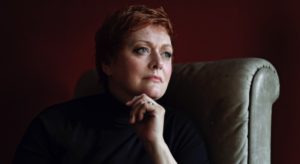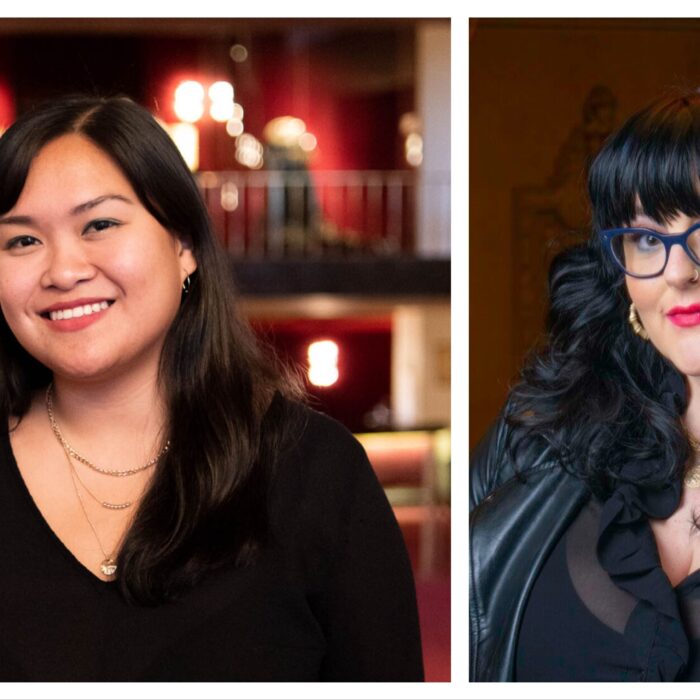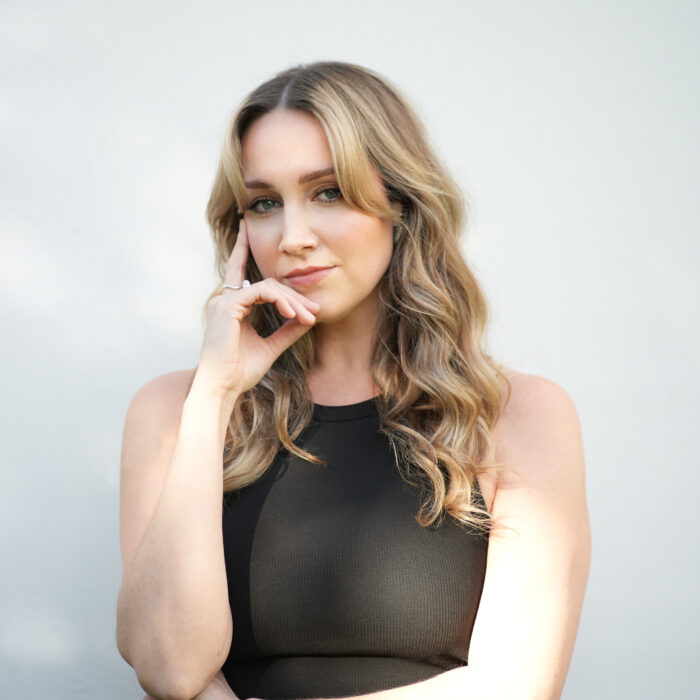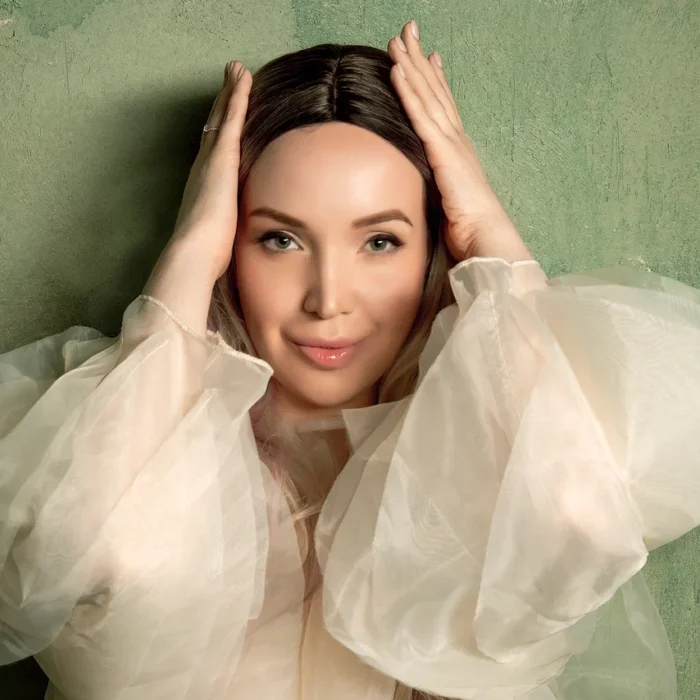
Q & A: Catherine Foster On Vocal Stamina, Taking on Dramatic Roles By Wagner, Strauss, Puccini
By Francisco SalazarCatherine Foster is known as one of the great of Brünnhildes of our time. She has performed the role six consecutive times at the Bayreuth Festival and continues to be in-demand for her interpretation.
And while there is no denying that this might be her signature role, it is impossible to discount three other operas that she is also dominating – “Tristan und Isolde,” “Elektra” and “Turandot.”
And this season, she will showcase her prowess in all all three works on the stages of Mannheim, Berlin, Bologna, Sofia, and Köln, among others.
The British Dramatic soprano spoke with OperaWire on the challenges of balancing the dramatic repertory and the joys of performing some of the most challenge works ever written.
OperaWire: This season you sing everything from Wagner to Puccini to Strauss. What are the challenges of performing the dramatic repertory, particularly “Tristan und Isolde,” “Elektra” and “Turandot?”
Catherine Foster: The big repertoire is not so far away from other repertoire in a lot of things such as keeping healthy, exercised, a good technique – but a couple of main differences I think are required is stamina, size of voice and the ability to be able to sing full out for a long time.
The roles above are like a marathon and you have to train into this. You cant suddenly just pick up and perform a dramatic role after a couple of weeks off! I’ve always believed I should be able to sing any role in my repertoire twice in one day if necessary… That doesn’t mean everyday of course, as one has to balance vocal rest and vocal use. For that reason I rarely mark, but I do need good breaks to let the voice rest – that also includes periods of time where I am silent, no phone calls, no talking!
A lot of my work is done silently – which has been hard to teach myself but necessary if I want to have a long career.
OW: How do you keep your voice fresh when performing these demanding roles? What are some of your secrets to maintaining your voice healthy?
CF: There isn’t really any secret to maintain a healthy voice other than having a healthy technique. Of course there are other things along the way such as plenty of rest, keep the body hydrated, eat a good diet, exercise – our body is our instrument so we I look after it and then balancing periods of vocal rest (ie no talking or singing!) with periods of working.
OW: This season you will also sing “Die Frau ohne Schatten” and “Elektra.” What are some of the differences in Strauss’ musical writing and how are they similar?
CF: The two operas premiered 10 years apart and both were a collaboration of Hofmannsthal and Strauss. “Elektra” of course being based on Greek Mythology and FROSCH was written as a comedy based on the idea of “Die Zaubeflöte” but in ‘modern day’ with two couples looking for the secret of love. For me the two protagonists I play are very strong women that have their vulnerable moments which Strauss composes so beautifully.
“Elektra” doesn’t have the “nagging” that the Fäberin has in Act one but more the solemness of a woman in pain as she starts out with her first aria but both resolve to achieve their goals. Each emotion in both operas for both women is exquisitely plotted out by Strauss sometimes in full orchestration and sometimes with barely anything. This of course lends itself so well for the singer to change color and
intent as each emotion plays out.
OW: What are the keys to performing with such large orchestras especially with “Elektra” which is known to have the biggest in the repertoire?
CF: Rule number one….Don’t even begin to think about, let alone try, and compete with the orchestration! However, if you look, in particular at the “Elektra” score, when she sings, Strauss has writes that the orchestra plays quietly until the big moments when everything opens up – but at those moments she is higher in the register and so will carry across the orchestra much more easily.
OW: The roles you are performing “Elektra” and “Die Frau ohne Schatten” can sometimes be villainous and unsympathetic. How do you see these characters and what are some of their greatest musical moments that you love to sing?
CF: True on both accounts, but then they are both extremely humane too and both have such wonderful revealing open moments of tenderness. I find it interesting that “Die Frau” for example is portrayed as a bit of a moaning wife at the beginning when actually she is only trying to get a response from Barack, that will not come of course, as well as trying to compete for his attention with his brothers. She feels unfulfilled at this point in life and so is vulnerable to the entrance of the Amme and her manipulating ways, however, she never truly betrays Barack, she only thinks about it.
With “Elektra” she cannot forgive and that lack of forgiveness turns to hate and a thirst for an all consuming revenge. The audience is then shown her humane side by Strauss and Hofmannsthal who do a U-turn by showing the vulnerable, beautiful girl she was, full of hope in the spectacular duet with Orest – one of my many favorite moments.
OW: Strauss and Wagner are often sung by the same dramatic sopranos. What are the similarities in their music and do you think one is easier to sing?
CF: The heroines of Strauss and Wagner are written for the most part for bigger voices, simply to be able to get through the roles and over the orchestration one requires a bigger voice that becomes a part of the music. Each role has its own quirks and learning curve for the singer but basically long lines, good breathe and a very very secure solid technique is required to be able to sing these roles.
OW: Both “Elektra and “Tristan und Isolde” are long evenings. “Tristan und Isolde” is longer but “Elektra” never gets off the stage. How do you pace yourself when you sing such long roles?
CF: My preparation for these big roles begins at least the day before, mostly two to three days before as I begin to recite the text and think about the relevant production I am singing in. On the day I will be at least two to three hours before my makeup time in the theatre to prepare mentally slowly and steadily for the evening.
“Elektra” is the only one in my repertoire where the rehearsal period is extremely important. It is not too long because she never gets a break in the rehearsal stages. As you say, she is on stage for the whole opera and although the piece is not as long as the Prologue and first act of “Götterdämmerung,” the sheer energy and emotions required as well as the huge sing takes as much energy as that opera. There is no down time for “Elektra.” There is 150 percent concentration required for almost two hours solid. In other operas I do get the chance to come off stage and “take a breathe” and a drink – not in “Elektra.” Preparation is both mental and physical for all my roles.
OW: What are your favorite moments in “Tristan un Isolde” and what makes the role of Isolde so rewarding? What is the most demanding part of the opera?
CF: The first act of Tristan is the longest for Isolde and the one that is the most fiery and probably demanding. The second act is shared with Tristan and then of course Tristan takes over in the third act and Isolde comes and finishes the opera with one of my favorite highlights of Wagner – the Liebestod. I think that is amongst one of my favorite moments in “Tristan und Isolde” as she stands alone on stage with just the waves of orchestral music ebbing and flowing like the waves and taking my voice with it.
OW: Where does Puccini fit in with these two composers? Is “Turandot” a softer evening then say “Elektra” or “Tristan und Isolde?” Or do you think it’s more of a challenge considering Puccini does not allow the soprano to warm up and goes straight into one of the most famous parts of the work?
CF: “Turandot” is most definitely not a softer evening as the tessitura is high and she comes in literally with a bang, straight into the riddle scene and then onto an aria which requires soft vulnerable long lines. It isn’t any more of a challenge, just a different challenge from the other roles. I have to warm the voice up completely before walking on stage, but then that is also the case with “Die Walküre” before the “Hojotoho.” And of course Isolde starts with a bang as does Elektra with her huge aria at the beginning.
OW: What would you say to any young dramatic soprano heading toward these roles? What are the keys to having a lengthy career in this challenging repertoire? Was there anything you learned at the start that you have used throughout the years in this profession?
CF: I learnt very early on – never think of your voice or the role you are singing as big! It either fits you and your voice or it doesn’t. If I have to struggle with a role then I have always said its not right for me – but to date I have luckily never found one. I have a mantra that I use in that if I can sing a role twice in one day in full voice, then it is a role for me.
As a tip for young singers – don’t be in a hurry to get there, as my teacher once said to me. If you can sing a role it doesn’t necessarily mean you should. Our voices are like little children and they take time to grow up. Don’t be in a rush to be a fully matured Dramatic voice. Sing other repertoire that is lighter. It doesn’t have to be the lightest and it doesn’t have to be Mozart. There is a lot of repertoire out there between the very light operas and the heavy dramatic roles. Learn to sing quietly as well as loud and learn how to do coloratura. All these things have kept my voice healthy and flexible. I can still do coloratura and I use them as my warm ups to help keep my voice focused high and not too chesty.


